Tuesday, April 5
| 10:30 a.m.–12:30 p.m. | "Natural and Unnatural Forests; Managed and Unmanaged Forests---What Do We Want and What Are we Getting?" Bill Voelker, Ford 122
Objectives have changed since forest management was initiated, but many forests haven't changed to match the new objectives. Significant parts of Oregon's publicly owned forests are now developing toward undesirable and unsustainable conditions. It can be argued that active targeted forest management is needed, but this is not possible with current public attitudes, today's laws, or current timber markets and agency budgets. ICL member Bill Voelker, a retired forester, will discuss past, present and projected developments in eastern Oregon pine forests and on western Oregon's Elliott and Tillamook State Forests. Some politically incorrect opinions will be offered. ICL members will be invited to discuss what they would like to see done. |
| 1:30 –2:30 p.m. | "The Feathered Mantle and Tehuantepec Dress," Jubilith Moore, WU Theater presentation [Deborah Ehlers], Ford 122 Play by Judith Halebsky | Director: Jubilith Moore
|
| 2:30–3:30 p.m. | "ICL: Present and Future," ICL Executive Director Mark Kasoff, Ford 122 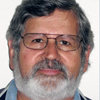
As we near the end of this academic year, members are asked to evaluate the curriculum and suggest ways to strengthen ICL. This feedback will help shape future presentations and activities. |
Thursday, April 7
| 10:30 a.m.–11:30 a.m. | Music Video Lecture: "How to Listen To and Understand Great Music: "19th Century German Opera–Richard Wagner," Prof. Robert Greenberg [Solveig Holmquist], Ford 122
|
| 11:30 a.m.–12:30 p.m. | "RICHARD WAGNER, CREATOR OF MUSIC DRAMA", DEREK STABLES, Ford 122
Typical complaints about Wagner's music dramas are: too long, too loud, and too dull. While the first description is understandable, this series of 8 short video segments will seek to disprove the last two beliefs. The music of some of these excerpts will be instantly recognizable to you all, but the dramatic context will be familiar only to true believers. Come prepared for some surprises! Our presenter is long-time ICL member and opera aficionado Derek Stables. |
| 1:30 – 3:30 p.m. | 2 Hanni Student Scholar presentations, [Jim Brown], Ford 122
1. "Exploring Endangered Hawaiian Bird Competition through Markov Chain Monte Carlo," Albert Garcia [Jim Brown] Some species of Hawaiian honeycreeper are found only on specific islands, while elsewhere in the archipelago, others are found. Is this due to competition between the species or simply random fluctuation? Markov Chain Monte Carlo may help us find an answer.
• Major: Mathematics and Economics
2. "Cancer Clusters: Various Perceptions and Rising Tensions," Julianne Johnson [Tom Zook] A cancer cluster is an unexpected number of cancer victims over an area and period of time. I will discuss my exploratory research of West Salem as a case study to understand various perceptions and tensions of cancer clusters in society.
• Major: Anthropology |
Tuesday, April 12
| 10:30 a.m.–11:30 a.m. | "FBI Counterterrorism Investigations," Doug Olson of the FBI, [Phil Sperl], Ford 122 Description TBA Doug Olson entered duty with the FBI in January 2003 and was assigned to the Charlotte Division. While in Charlotte, he investigated a variety of Criminal and Counter Terrorism matters, including significant cases involving serial bank robbers, white collar criminals and drug trafficking organizations. In April 2006, Mr. Olson transferred to the New York Division, where he conducted enterprise investigations dealing with violent crime, white collar crime, and drugs. Mr. Olson subsequently utilized well-placed cooperating witnesses in conjunction with other sophisticated techniques to target criminal enterprises operating in New York. His specific efforts resulted in the conviction of leaders, members and associates of the Genovese and Bonanno Organized Crime Family(ies). From 2006 to 2011, Mr. Olson was a member of the New York Dive Team. In October 2009, Mr. Olson was promoted to Supervisory Special Agent and assigned to the Organized Crime Drug Enforcement Task Force and later to the Transnational Organized Crime Threat Section where he was responsible for standing up a new unit focused on Eurasian organized crime. In this role as Program Manager, Mr. Olson was responsible for overseeing the Eurasian Organized Crime Program in 56 FBI Field Offices and five overseas Task Forces. In January 2013, Mr. Olson was selected to serve as the Supervisory Senior Resident Agent (SSRA) of the Salem Resident Agency, Portland Field Office. Mr. Olson previous non-FBI work experience occurred during his eight years of active duty military service as an officer in the United States Marine Corps. He is a 1995 graduate of Virginia Polytechnic and State University (Virginia Tech.) |
| 11:30 a.m.–12:30 p.m. | "The Art of Ocular Prosthetics," Fredric Harwin [Phil Sperl], Ford 122 The Center for Ocular Prosthetics creates detailed, custom-made ocular prosthetics (artificial eyes), for those young and old alike, transforming the appearances of prisoners, priests and everyone in between. Based in Portland, Oregon and representing a profession of fewer than 150 board-certified ocularists in the United States, Fredric Harwin combines advanced degrees in both science and fine art. Harwin's talent and attention to detail have been recognized across the country and were the subject of an award-winning short documentary entitled "Ocularist," which won numerous awards, including an award at the 2003 Sundance Film Festival.
|
| 1:30–2:30 p.m. | "AVID: The Great Equalizer," West Salem High School Students, [Betty Kasoff], Ford 122 AVID (Advancement Via Individual Determination), a program at West Salem High School, has as its mission closing the achievement gap by providing all students with the skills to pursue a college degree. The program administrator, a panel of AVID teachers, and several students will share their experience and some of their personal stories with us. These students beat the odds. Last year 100% of AVID seniors were admitted to four year colleges. |
| 2:30 – 3:30 p.m. | Science Video presentation, "The Ice Moons Europa and Enceladus," Prof. Paul M. Meyer [Paul Rice], Ford 122 Lecture 6
|
Thursday, April 14
| 10:30 a.m.–12:30 p.m. | Oregon History Potpourri: Vignettes from Oregon History [Don Gallagher], Ford 122 This presentation by several ICL members including Solveig Holmquist, Toni Peterson, Joan Robinson, and Don Gallagher will share several short stories from Oregon History. Some of the stories will include family history components. |
| 1:30 – 3:30 p.m. | Two Hanni Student Scholar presentations, [Jim Brown], Ford 122
1. "Redefining Asian Economic Regionalism," Jessica Weiss [Jim Brown] The decision to put forward the Asian Infrastructure Investment Bank (AIIB) comes with implications of a new order of economic regionalism in Asia. Since World War II, Asia has become a dynamic economic zone with a vast diversity in policies regarding development, trade, and financing. Nonetheless, the persistent efforts at regionalization have come to suggest that the region is converging in terms of interests. We look to the rise of China and how multilateral institutions have not adequately accounted for its growth, and how China’s rise as an economic power and its integration within the region has led to a redefinition of the U.S. hub-and-spokes system of hegemony, challenging the United States to accept China’s role as a regional power. As China continues to integrate regionally and globally, the lack of accommodation has pushed China towards the establishment of the AIIB. This paper will focus on the historical contexts that have formed the foundation for the creation of the AIIB and what they mean for the region, and then finish off with future implications of the new bank, concluding that ultimately the AIIB will create a new economic order in a uniquely Asian region that will challenge declining U.S. influence to accept Asian regionalism under China.
• Major: International Studies, Economics,
2. "Satan's Racialization in John Milton's Paradise Lost," Alison Hsiao [Mark Kasoff] My presentation will delve into how Satan is racialized as a black body through the language in Milton's Paradise Lost. My argument is based in critical race theory and asserts that although we often consider premodern texts to be free of race, they are in fact brimming with racial tension. The religious imagery of light and dark tightly paired with God and Satan within Paradise Lost moralize white and black, thereby glorifying whiteness and condemning blackness.
• Major: English/Music (piano performance), |
Tuesday, April 19
| 10:30 a.m.–11:30 a.m. | "Martin Wong's Nuyorico," Roy Pérez [Lois Rosen], Ford 122 Chinese-American painter and art collector Martin Wong lived in Manhattan's Lower East Side in the 1980s, where he circulated among and collaborated with a number of Puerto Rican artists and writers. In this talk, I explore how this proximity to Nuyorican (Puerto Rican New York) culture appears in and shapes Wong's paintings. I also examine Martin Wong's presence as a gay Asian American painter in the popular history of Latino arts and culture and the ways in which his paintings challenge typical representations of Latino masculinity. What happens when we move Wong to the center of Latino art and cultural history? What does Wong's vision of Nuyorico reveal to us about its people, landscape, and culture?
Bio: Roy Pérez is an assistant professor of English, American Ethnic Studies and Women's and Gender Studies at Willamette University. He received his Ph.D. in American Literature and Culture at New York University. He has published poems and scholarship in Glitter Tongue, the Best of Panic! poetry anthology, TheThePoetry, bully bloggers, FENCE, Platforms: Ten Years of Chances Dances, and the journal Women and Performance. He writes about literature, art, theater, and popular culture, and is currently working on Proximities, a book about racial and sexual representation in Latina/o literature and performance. Areas of Teaching: Roy Pérez's courses in the department of English cover U.S. Latina/o culture from the colonial encounter to the present, contemporary Latina/o media, Marxist literary theory, performance studies, critical race analysis, and queer studies. He also teaches core courses in the American Ethnic Studies program, including an introduction in which students interrogate the histories of racial formation in the Americas and apply critical race theories to cultural production such as literature, art, film, and television. Education: Ph.D. English, New York University, 2012M.A. English, New York University, 2009 B.A. English, Linguistics and Women’s Studies, University of Central Florida, 2004 |
| 11:30 a.m.–12:30 p.m. | "Writing Potpourri," Lois Rosen, Ford 122 Members of the ICL Writing Group will offer a fragrant blend of their stories and poems. You’re most cordially invited to enjoy the mix of vivid, lively, wise writing of Anne Bowden, Betty Kasoff, Dina Triest, Gretchen Jensen, Tim Nelson, Vernelle Judy, Marilyn Johnston and Lois Rosen. |
| 1:30 – 3:30 p.m. | Great Decisions: "The Rise of ISIS," Nate Balk, [Jeanette Flaming], Ford 122 Born out of an umbrella organization of Al-Qaeda in Iraq, the so-called Islamic State in Iraq and Syria (ISIS) burst onto the international stage after it seized Fallujah in December 2013. Since then the group has seized control of a number of critical strongholds in the country and declared itself a caliphate, known as the Islamic State. Still, the question remains: What is ISIS, and what danger does it pose to U.S. interests? |
Thursday, April 21
| All day | Field Trip: "Green Agriculture and Architecture in the Central Willamette Valley," [Mike and Meredith Gilbert], Kirsch Family Farm, Crosby Hop Farm, Mt. Angel Abbey
ITINERARY: 8:30 am: Begin loading bus at Mission Mill Parking Lot
|
Tuesday, April 26
| 10:30 a.m.–12:30 p.m. | "From Civil Rights to Consumer Protection and Back," Erious Johnson [Kay Gerard], Ford 122 Erious will share historical and contemporary views of civil rights in Oregon.
Attorney General Ellen Rosenblum, who swore in Johnson as her civil rights director, said in a news release he would perform a core mission of her office: outreach to Oregon's diverse communities. "I selected Erious because of his extensive background in civil rights law and an already impressive record of community service and outreach in his brief time in Oregon." Johnson, who lives in Salem, leaves his private law practice. He was admitted to the Oregon State Bar a little less than a year ago, but he has quickly become a fixture in local civil rights organizations. He's a member of the board of directors for Oregon Humanities and served as volunteer chair of the Legal Redress Committee of the NAACP's Salem-Keizer branch. Johnson practiced law in New York for the Sullivan and Cromwell firm and the New York City Law Department. He also clerked for a justice in the New York State Supreme Court. Johnson earned his law degree from Howard University Law School in Washington, D.C. |
| 1:30 – 2:30 p.m. | Language Video presentation: "Finale–Master Class," John McWhorter [Jinx Brandt], Ford 122
Our ICL host is Dee Iltis. |
| 2:30–3:30 p.m. | "Passivist or Activist: What is the Proper Role of an Archivist?" WU Archivist Mary McRobinson [Tom Zook], Ford 122 Does the approach the archival profession takes to collecting records shape the way we, as a society, understand and view our history? What responsibilities do individual archivists have in selecting and providing access to records? This talk will provide a brief overview of the archival profession and explore whether archivists should be passive or active in their methods.
|
Thursday, April 28
| 10:30 a.m.–11:15 a.m. | "Helmuth Rilling: A Living Musical Genius," Solveig Holmquist, Ford 122 Internationally renowned German conductor, scholar, and lecturer Helmuth Rilling comes to Salem to guest conduct the Willamette Master Chorus in a performance of two well-known cantatas of Johann Sebastian Bach: Cantata No. 80: Ein feste Burg ist unser Gott (A Might Fortress is Our God) and Cantata No. 147 Herz und Mund und Tat und Leben (Heart and Mouth and Deed and Life), which contains the beloved chorale Jesu, Joy of Man's Desiring. Mr. Rilling will offer a lecture format on the "Theological Aspects in the Music of Johann Sebastian Bach" at a convocation in Willamette University's Hudson Hall at 11:30, which ICL is invited to attend.
Now in his mid-80's, Mr. Rilling has stepped down as Artistic Director of the Oregon Bach Festival, which he founded and led for 40+ years, but still maintains an exhausting travel, lecture, and conducting schedule. Born in 1933 in Stuttgart, Helmuth Rilling is active as a conductor, pedagogue, and an ambassador for the music of J. S. Bach worldwide. In 1954 Helmuth Rilling founded the Gächinger Kantorei and 11 years later in 1965, he founded the Bach Collegium Stuttgart as the choir's regular orchestral partner. Ever since, Mr. Rilling has been intensely involved with the works of Johann Sebastian Bach and has felt a strong link to this composer's works. In addition, Mr. Rilling has been a fervent advocate of "neglected" romantic choral music as well as commissioning and performing contemporary choral music. In 2000, he led the critically acclaimed premiere of Passions composed by Wolfgang Rihm, Sofia Gubaidulina, Osvaldo Golijov, and Tan Dun. Inspired by his devotion to Bach, in 1981 Mr. Rilling founded the Internationale Bachakademie Stuttgart dedicated to furthering the music of J. S. Bach through public concerts, master classes for singers and conductors, symposia, and residencies all over the world, in addition to special annual projects such as the Bach Week Stuttgart and the European Music Festival Stuttgart. Of special importance to Mr. Rilling is the encouragement of young musicians and in 2001 he founded the Festivalensemble Stuttgart. This ensemble, consisting of choir and orchestra, draws on the participation of talented young musicians from 25 different countries. Combining the roles of pedagogue and conductor, Mr. Rilling has devised a system of "lecture concerts" in which he says he "peers over the composer's shoulder" as he explains to the audience certain aspects of a composer's work by means of musical examples. He has recently led such concerts with the orchestras of the University of Miami, Dartmouth College, and Yale University. He also continues to present workshops throughout the world. Either together with his house ensembles in Stuttgart or as a guest conductor, Mr. Rilling is active on the international concert podium, performing regularly throughout Europe, US, and Canada. 2011 included his first tour of China with the Gächinger Kantorei and the Bach Collegium Stuttgart. He has a special friendship dating back some 30 years with the Israel Philharmonic, and was Artistic Director of the Oregon Bach Festival from 1970 - 2013. Recent engagements in North America include the Symphony Orchestras of Dallas, Chicago, and Nashville, the Chamber Orchestra of Philadelphia, the National Symphony, the Orchestra of St. Luke's in a performance of Haydn's The Creation at Carnegie Hall and the Toronto Symphony Orchestra (where he has appeared annually as part of the Toronto International Bach Festival), the New York Philharmonic with the Gächinger Kantorei, and the American Choral Directors' Association's conference, where he continues to be a regular guest. As a testament to his inexhaustible activity are hundreds of CD, radio, and TV recordings. From 1970 to 1984, Mr. Rilling was the first musician to record all of Bach's Cantatas (Hänssler Classic). Furthermore, his was the guiding hand behind the Internationale Bachakademie's critically-acclaimed project to record the complete works of Johann Sebastian Bach (172 CDs) for Hänssler Classic which was released in 2000 to coincide with the 250th Anniversary of Bach's death. Recent recordings include works of Haydn, Händel, and Gubaidulina (The Passion and Resurrection of Jesus Christ according to St. John, "Echo Klassik" Award in 2008), as well as a live recording with the 2007 Festival Ensemble Stuttgart of Britten's War Requiem ("Editor's Choice Award" of the British Gramophone Magazine), Sven-David Sandström's Messiah, and Verdi's Requiem. The many prizes Helmuth Rilling has received include the UNESCO International Music Prize in 1994 and the Theodor Heuss Prize in 1995. In 2003 he became an Honorary Member of the American Academy of the Arts and Sciences. He won a coveted Grammy Award in 2000 for his recording of Krzysztof Penderecki's Credo and was again nominated in 2001 for his recording of Wolfgang Rihm's Deus Passus. In 2008 on the occasion of his 75th birthday he was awarded the Staufer Gold Medal, the highest award of the State of Baden-Württemberg. Most recently (2011), he was awarded the prestigious Herbert von Karajan Music Prize from the Festspielhaus Baden-Baden. |
| 11:30 a.m.–12:30 p.m. | Convocation in Hudson Hall, Conductor Helmut Rilling, **Hudson Hall** |
| 1:30 – 2:30 p.m. | Title TBA, Favorite Books [Erin Hanni], Ford 122 |
| 2:30–3:30 p.m. | Contemporary Literature Discussion: "The Invention of Wings," [Ruthann Panck], Ford 122 From the celebrated author of The Secret Life of Bees, a #1 New York Times bestselling novel about two unforgettable American women.
|


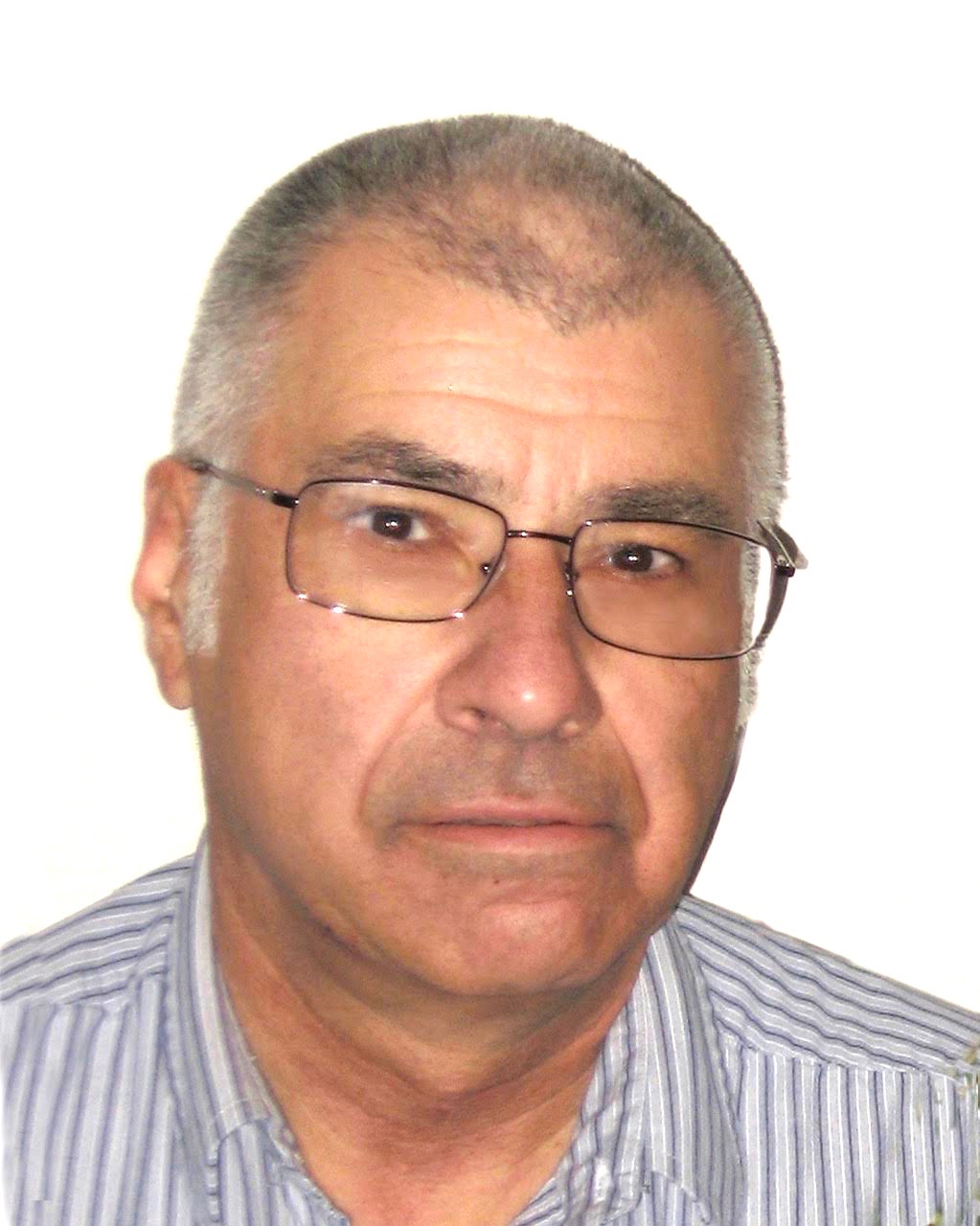
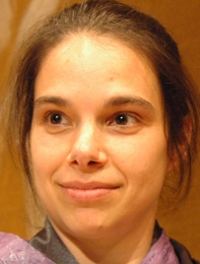 An angel entreats a fisherman to return her feathered cloak; a widower asks a weaver to make him a copy of a dress worn by his late wife. Both old stories — part fairytale, part biography — center on the extreme lengths one needs to travel in order to teach compassion, work through unresolved attachments and engender empathy. In a free verse exploration guided by the structures of Japan’s classical Noh theatre, poet Judy Halebsky explores the rich dramatic terrain of Frida Kahlo’s life in The Tehuantepec Dress, performed alongside a classic Noh drama.
An angel entreats a fisherman to return her feathered cloak; a widower asks a weaver to make him a copy of a dress worn by his late wife. Both old stories — part fairytale, part biography — center on the extreme lengths one needs to travel in order to teach compassion, work through unresolved attachments and engender empathy. In a free verse exploration guided by the structures of Japan’s classical Noh theatre, poet Judy Halebsky explores the rich dramatic terrain of Frida Kahlo’s life in The Tehuantepec Dress, performed alongside a classic Noh drama.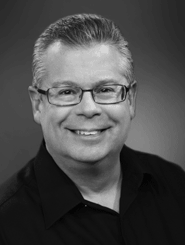 The revolutionary Richard Wagner rejected the traditions of Italian and French opera to create an all-inclusive music drama, characterized by continuous music and continuous drama, and a conception of the role of the orchestra as the "inner voice of truth," revealing psychological insights through the use of leitmotif. Wagner's hugely influential music drama, Tristan und Isolde of 1859, illustrates the application of his musical theories and reveals the essence of Romanticism in its aura of mystical and sensuous ecstasy.
The revolutionary Richard Wagner rejected the traditions of Italian and French opera to create an all-inclusive music drama, characterized by continuous music and continuous drama, and a conception of the role of the orchestra as the "inner voice of truth," revealing psychological insights through the use of leitmotif. Wagner's hugely influential music drama, Tristan und Isolde of 1859, illustrates the application of his musical theories and reveals the essence of Romanticism in its aura of mystical and sensuous ecstasy.
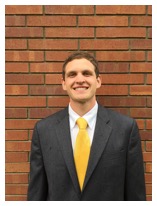 Biography: I’m a senior Mathematics/Economics major from Colorado. I love to get outside, whether it’s rafting, fishing, or playing baseball, and this has led me to become quite interested in nature. I enjoy trying to apply my Math and Econ knowledge to environmental questions.
Biography: I’m a senior Mathematics/Economics major from Colorado. I love to get outside, whether it’s rafting, fishing, or playing baseball, and this has led me to become quite interested in nature. I enjoy trying to apply my Math and Econ knowledge to environmental questions. Biography: My life ambition is to improve the lives of those with diseases. I founded the on-campus club Burning Bright, to volunteer for children with serious illnesses. I will be pursuing a second degree in nursing and a career in global health.
Biography: My life ambition is to improve the lives of those with diseases. I founded the on-campus club Burning Bright, to volunteer for children with serious illnesses. I will be pursuing a second degree in nursing and a career in global health.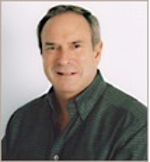 Fred Harwin was awarded a Bachelor of Fine Arts degree in interior architecture, drawing and painting from Wayne State University. He then went on to receive his Master of Science degree in
Fred Harwin was awarded a Bachelor of Fine Arts degree in interior architecture, drawing and painting from Wayne State University. He then went on to receive his Master of Science degree in 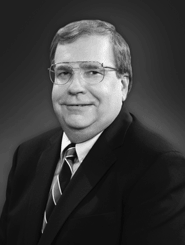 The discoveries on Europa and Enceladus by the Galileo and Cassini space probes have opened our eyes to new possibilities for life in the universe. Coupled with the discovery of life in extreme environments on Earth, we now recognize that even frigid, distant ice moons can have eco-friendly subsurface habitats. As a result, Europa and Enceladus have become high priorities for future space exploration. If we find evidence of life - even microbial life - has arisen in their subsurface oceans, it raises the likelihood that life is common throughout the universe. The odds for life elsewhere would be further increased if it could be determined that earthlike planets are common in our Milky Way Galaxy. Amazingly, we are close to answering this long-standing question.
The discoveries on Europa and Enceladus by the Galileo and Cassini space probes have opened our eyes to new possibilities for life in the universe. Coupled with the discovery of life in extreme environments on Earth, we now recognize that even frigid, distant ice moons can have eco-friendly subsurface habitats. As a result, Europa and Enceladus have become high priorities for future space exploration. If we find evidence of life - even microbial life - has arisen in their subsurface oceans, it raises the likelihood that life is common throughout the universe. The odds for life elsewhere would be further increased if it could be determined that earthlike planets are common in our Milky Way Galaxy. Amazingly, we are close to answering this long-standing question. Biography: I am a second-year Junior at Willamette University double majoring in International Studies and Economics, minoring in Chinese Studies. My personal interest is international economic issues, particularly international trade & finance, and international security & cooperation. I am a debater for Willamette, and have competed in numerous places like the University of Oxford, and have represented Willamette University at U.S. Nationals. I used to be a competitive swimmer, until the debating took over, and I am a news junkie on my free time. I am half Chinese, and have traveled to China numerous times to visit family, which sparked my focus in the Asian region.
Biography: I am a second-year Junior at Willamette University double majoring in International Studies and Economics, minoring in Chinese Studies. My personal interest is international economic issues, particularly international trade & finance, and international security & cooperation. I am a debater for Willamette, and have competed in numerous places like the University of Oxford, and have represented Willamette University at U.S. Nationals. I used to be a competitive swimmer, until the debating took over, and I am a news junkie on my free time. I am half Chinese, and have traveled to China numerous times to visit family, which sparked my focus in the Asian region. Biography: My name is Alison Hsiao and I am from Portland, Oregon. My interests are largely in English, Music, and Chinese studies. In my studies, I am invested in immigrant experiences and how they may problematize ideas of identity.
Biography: My name is Alison Hsiao and I am from Portland, Oregon. My interests are largely in English, Music, and Chinese studies. In my studies, I am invested in immigrant experiences and how they may problematize ideas of identity.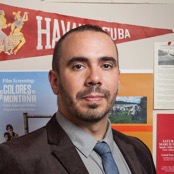
 9:30 am: Arrive Kirsch Farm, 4350 Mahoney NE, St. Paul OR 97137, (503) 508-37269:30-10:30 am: Farm Tour
9:30 am: Arrive Kirsch Farm, 4350 Mahoney NE, St. Paul OR 97137, (503) 508-37269:30-10:30 am: Farm Tour 10:45 am: Arrive Crosby Hop Farm , 8648 Crosby Rd NE, Woodburn, OR 97071
10:45 am: Arrive Crosby Hop Farm , 8648 Crosby Rd NE, Woodburn, OR 97071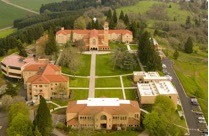 12:15 pm: Arrive Mt. Angel Abbey, 1 Abbey Drive, Mt. Angel, OR 97373
12:15 pm: Arrive Mt. Angel Abbey, 1 Abbey Drive, Mt. Angel, OR 97373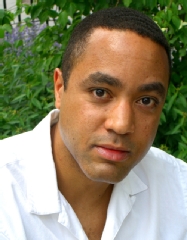 Professor McWhorter concludes with an etymological sampling of the English language, tracing the origin of every word in the sentence: While the snow fell, she arrived to ask about their fee.
Professor McWhorter concludes with an etymological sampling of the English language, tracing the origin of every word in the sentence: While the snow fell, she arrived to ask about their fee.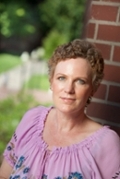 Mary McRobinson is the University Archivist at Willamette University, a position she has held since March 2006. Before joining Willamette University, Mary was employed for five years at the University of Georgia, where she was Head of the Descriptive Services Unit at the Richard B. Russell Library for Political Research and Studies. She received her M.L.I.S. with an emphasis in archival enterprise from the University of Texas-Austin and her B.A. in history from the University of Nebraska-Omaha.
Mary McRobinson is the University Archivist at Willamette University, a position she has held since March 2006. Before joining Willamette University, Mary was employed for five years at the University of Georgia, where she was Head of the Descriptive Services Unit at the Richard B. Russell Library for Political Research and Studies. She received her M.L.I.S. with an emphasis in archival enterprise from the University of Texas-Austin and her B.A. in history from the University of Nebraska-Omaha.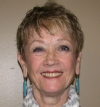 ICL's Solveig Holmquist will prepare us for this lecture and provide personal insights into Maestro Rilling's particular genius, based on her 29-year tenure in the professional chorus of the Oregon Bach Festival in Eugene, for which Mr. Rilling was founding Conductor and Artistic Director. [Note: we will conclude this session early, in order to be on time for the convocation in Hudson Hall.]
ICL's Solveig Holmquist will prepare us for this lecture and provide personal insights into Maestro Rilling's particular genius, based on her 29-year tenure in the professional chorus of the Oregon Bach Festival in Eugene, for which Mr. Rilling was founding Conductor and Artistic Director. [Note: we will conclude this session early, in order to be on time for the convocation in Hudson Hall.]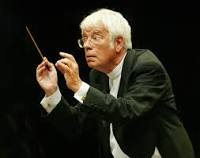
 Writing at the height of her narrative and imaginative gifts, Sue Monk Kidd presents a masterpiece of hope, daring, the quest for freedom, and the desire to have a voice in the world. Hetty “Handful” Grimke, an urban slave in early nineteenth century Charleston, yearns for life beyond the suffocating walls that enclose her within the wealthy Grimke household. The Grimke’s daughter, Sarah, has known from an early age she is meant to do something large in the world, but she is hemmed in by the limits imposed on women. Kidd’s sweeping novel is set in motion on Sarah’s eleventh birthday, when she is given ownership of ten year old Handful, who is to be her handmaid. We follow their remarkable journeys over the next thirty five years, as both strive for a life of their own, dramatically shaping each other’s destinies and forming a complex relationship marked by guilt, defiance, estrangement and the uneasy ways of love. As the stories build to a riveting climax, Handful will endure loss and sorrow, finding courage and a sense of self in the process. Sarah will experience crushed hopes, betrayal, unrequited love, and ostracism before leaving Charleston to find her place alongside her fearless younger sister, Angelina, as one of the early pioneers in the abolition and women’s rights movements. Inspired by the historical figure of Sarah Grimke, Kidd goes beyond the record to flesh out the rich interior lives of all of her characters, both real and invented, including Handful’s cunning mother, Charlotte, who courts danger in her search for something better. This exquisitely written novel is a triumph of storytelling that looks with unswerving eyes at a devastating wound in American history, through women whose struggles for liberation, empowerment, and expression will leave no reader unmoved.
Writing at the height of her narrative and imaginative gifts, Sue Monk Kidd presents a masterpiece of hope, daring, the quest for freedom, and the desire to have a voice in the world. Hetty “Handful” Grimke, an urban slave in early nineteenth century Charleston, yearns for life beyond the suffocating walls that enclose her within the wealthy Grimke household. The Grimke’s daughter, Sarah, has known from an early age she is meant to do something large in the world, but she is hemmed in by the limits imposed on women. Kidd’s sweeping novel is set in motion on Sarah’s eleventh birthday, when she is given ownership of ten year old Handful, who is to be her handmaid. We follow their remarkable journeys over the next thirty five years, as both strive for a life of their own, dramatically shaping each other’s destinies and forming a complex relationship marked by guilt, defiance, estrangement and the uneasy ways of love. As the stories build to a riveting climax, Handful will endure loss and sorrow, finding courage and a sense of self in the process. Sarah will experience crushed hopes, betrayal, unrequited love, and ostracism before leaving Charleston to find her place alongside her fearless younger sister, Angelina, as one of the early pioneers in the abolition and women’s rights movements. Inspired by the historical figure of Sarah Grimke, Kidd goes beyond the record to flesh out the rich interior lives of all of her characters, both real and invented, including Handful’s cunning mother, Charlotte, who courts danger in her search for something better. This exquisitely written novel is a triumph of storytelling that looks with unswerving eyes at a devastating wound in American history, through women whose struggles for liberation, empowerment, and expression will leave no reader unmoved.